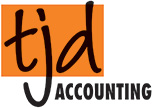How are Foreign Investors Taxed in Australia?
Australia’s taxation system is one of the most complex yet structured in the world, and it may be even harder to understand for foreign investors.
If you are not an Australian resident and have an investment in the country, particularly property, you need to know what your tax obligations are.
This guide reviews some of the key issues concerning Australian taxation foreign investors; highlighting what it takes to handle such a complex arrangement.
Income Tax for Foreign Investors
For foreigners, taxable income generally includes:
– Australian Employment Income: Income earned from employment within Australia.
– Rental Income: Income from rental properties located in Australia.
– Investment Income: This includes dividends, interest, and royalties derived from Australian sources.

Foreign property investors may not be aware that they are not entitled to the 50% CGT discount that is available to residents, which doubles the CGT payable on any gains made.
Tax Rates for Foreign Investors
Foreign residents do not benefit from the tax-free threshold available to residents. As of July 1, 2024, The tax rates for non-residents are structured as follows:
|
Taxable income in AUD$ |
Tax on this income |
|---|---|
|
0 – $135,000 |
30c for each $1 |
|
$135,001 – $190,000 |
$40,500 plus 37c for each $1 over $135,000 |
|
$190,001 and over |
$60,850 plus 45c for each $1 over $190,000 |
Non-residents are also subject to higher rates of withholding tax on certain types of income, such as interest, unfranked dividends, and royalties. The withholding tax we’re concerned about is 12.5% for properties sold at $750,000, but will increase to 15% withholding for all properties sold from $0 (effective January 1st, 2025).
CGT for foreign residents in Australia?
Capital Gains Tax is a tax on the profit realized from the sale of assets. In Australia, this includes residential and commercial property, shares, and other significant investments. Non-residents are not entitled to the 50% CGT discount that is available to residents, which effectively doubles the CGT payable on any gains made.
How do foreign investors lodge tax returns in Australia?
Foreign property investors typically need to submit some or all the following documents when filing tax returns with the Australian Taxation Office (ATO):
– Foreign Investment Property Tax Return: This is a specific form for reporting foreign property investments and related income.
– Rental income documentation: Records of all rental income received from the foreign property, converted to Australian dollars.
– Expense receipts: Documentation for all deductible expenses related to the property, such as repairs, maintenance, insurance, and property management fees.
– Loan statements: If there’s a mortgage on the property, statements showing interest paid and other loan-related expenses.
– Foreign tax documentation: Proof of any foreign taxes paid on the rental income, which may be eligible for foreign income tax offset.
– Property valuation: Documentation of the property’s value, especially if claiming depreciation.
– Capital gains information: If the property was sold, documents showing the purchase price, sale price, and any capital improvements made.
– Currency conversion records: Documentation showing the exchange rates used to convert foreign currency amounts to Australian dollars.
– Schedule of additional information: If required, to provide extra details about foreign source income.
– Declaration of foreign assets: If the total value of foreign assets is A$50,000 or more, this needs to be declared.
PAYG payment summaries or income statements: If applicable, for foreign employment income.
Key Dates and Deadlines
The Australian tax year runs from July 1 to June 30. Tax returns must be lodged by October 31 of the following financial year. Foreign residents should ensure they meet this deadline to avoid penalties.
Avoiding Double Taxation
Double Taxation Agreements (DTAs): Australia has entered into DTAs with 80 countries to prevent double taxation and to allocate taxing rights between Australia and the foreign resident’s home country. Some of these countries are the United States, United Kingdom, Singapore, China, Canada, Spain, and France. DTAs may reduce the tax rates on certain types of income or exempt them entirely.
Foreign Tax Credits
If you have paid tax on income in another country, you may be eligible to claim a foreign income tax offset on your Australian tax return, reducing your overall tax liability.
Seeking Professional Guidance
Given the complexity of the Australian tax system, particularly for foreign investors, it is advisable to seek professional advice from tax specialists who can provide personalized guidance based on your circumstances.
Strategic Financial Planning
Proper tax planning can help foreign residents minimize their tax liability in Australia. This includes considering the timing of income, structuring investments effectively, and understanding the tax implications of any financial decisions made while in Australia.
Watch our latest video: Why and how do foreign investors need to lodge Australian tax returns
Read more on: Do foreign investors pay capital gains tax in Australia?
Our team at TJD Accounting Services has over 40 years of experience in handling non-resident tax returns and providing financial guidance to overseas investors. Let us help you make informed decisions to help protect your assets and finances.
Email us at info@tjdaccounting.com.au or call +61 3 9379 4040.
